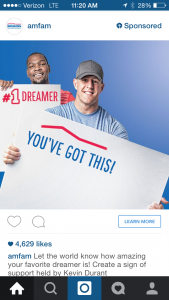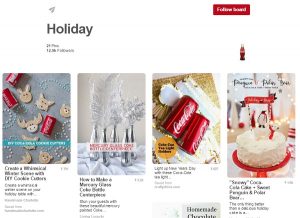Just For You, YouTube Says

Two three-letter words will change the way brands message consumers in advertisements and marketing in search, email and other media within the next few years, as Google and others phase out browser-based cookies that target consumers and real one-to-one targeting takes hold.
I never paid much attention to this phrase “for you” or “just for you.” I figured that the company had placed me into an audience segment of thousands, rather than the one-to-one message they have been promising for years based on data such as past purchases and searches.
Artificial intelligence has made that change possible — starting now, as global advertising in 2023 continues the climb to $874.5 billion, according to a mid-year GroupM report. That number is about $322.5 in the U.S.
“Our AI determines the shopper’s intent, so it becomes about people and not personas,” said Kiyomi Harrington, director of public relations for social and corporate communications. “This is where as-you-go personalization works, even without the consumer logging in. The AI can determine what you’re looking for in just a few clicks.”
Coveo, with assistance from RSR Research, surveyed 92 U.S.-based retailers, most with revenue of more than $250 million.
The survey was fielded in August 2023, and found that within the next three years hyper-personalization will drive sales. These deals are called “just for you” or hyper-personalized offers, and more marketers will insert those three words that make consumers feel special in more ads and marketing messages.
Some 90% of respondents to Coveo’s study say they already run these deals. But more significantly, 90% say hyper-personalization will end industrywide special sales events within the next three years — making way for a new type of promotion.
Sam Cooke sings about the special three-word phrase in his 1961 song titled Just For You, where he sings “I finally realized that it’s just for you.”
YouTube will roll out a personalized section, For You, on the home tab of creators’ channels. Beginning November 20, visitors to a specific channel will be greeted with a tailored list of recommended videos, with a mix of content from the channel based on the viewer’s watch history.
Those two words — for you — have the potential to make someone feel special and boost viewer engagement on channels. This opens the door to increase revenue and builds relationships. Creators can control the feature by toggling it on or off in the channel settings.
Even with a $10 billion investment in identity solutions and services forecast for 2023, many advertisers have delayed focusing on new measurement tactics due to the shifting timeline to deprecate cookies in browsers by Google and others. That is one reason this hyper-personalization will expand with support from AI, especially in retail media.
Retail media is the third-fastest-growing advertising channel in 2023, behind digital out-of-home (OOH) and connected television (CTV), although those channels are a fraction of the size.
Media ad estimates, including ad revenue from “last-mile” delivery services in GroupM’s mid-year report, will grow 9.9% to reach $125.7 billion in 2023, and this is forecast to exceed TV revenue, including CTV, in 2028.
Publishers have used “for you” or “content you might like” for years to direct readers to other content they think the site visitor would enjoy reading.
Taboola has been described as a self-branded internet “discovery platform.” It curates and pushes online content to users based on a person’s interests. The web-based platform using the tagline “content you may like” to recommend and connect people to sites that may resonate with them is the core of Taboola’s business.
What Taboola does is not one-one-one marketing, but it feels like the precursor the industry took to reach one-on-one hyper-personalized marketing and advertising. Google Search and Microsoft Bing also did this, by asking the person searching on the engines if they would like more information about something … in the search bar.
(6)
Report Post






